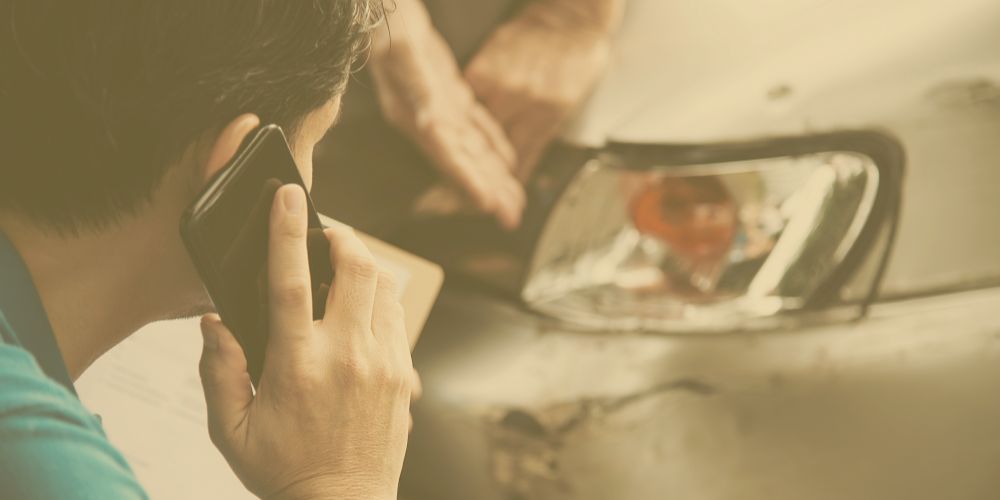Bailee in Posession & Credit Hire

October 19, 2023

Introduction
It is quite common for a person driving someone else's vehicle to be involved in a road traffic accident. Obvious examples would be driving a rental car, or a spouse driving a vehicle owned by their partner. In these circumstances a vehicle on credit hire may be required.
The concept of “bailee in possession” in credit hire is designed to cover the situation where a driver who is not the owner of the vehicle is involved in a road traffic accident and then hires a vehicle thereby incurring hire charges, which they then seek to recover from the person at fault (the “wrongdoer”). The driver of the vehicle is the “bailee”. The owner of the vehicle is the “bailor”.
In this article I will seek to clarify this concept by addressing the following: (1) origins of bailee in possession; (2) what is a bailee in possession? (3) examples of a bailee in possession; (4) principles governing bailee in possession and (5) conclusion.
Origins as to “bailee in possession”
The origin of a bailee in possesion is actually quite interesting, as it appears to derive from cattle stealing, when in the “primitive condition of society in England, the arm of the law had to be called in to check the practice of cattle stealing, and it is shewn that the person in actual possession of the cattle stealing at the time they were stolen was of necessity the proper person who follow the trail and institute proceedings for their recovery” - [Winkfield, The, [1902] P.42 (1901),page 2]. I note the words “necessity” of the bailee to “follow the trail” and bring an action to recover the cattle is being used here. So bailee in possession very much has its origins in practicality and convenience, in that the person in possession of the cattle was in a better position than the owner to bring any action for recovery. Whilst the words “actual possession” are being used in The Winkfield, this has the potential to be confusing as the words “actual” add nothing to the equation. For example, party A (the “bailee”) rents a vehicle owned by the rental company (the “bailor”) and parks it outside their house. Party B (the “wrongdoer”) hits the stationary and unattended vehicle. Party A can then sue Party B for damage to the vehicle and any ensuing credit hire charges, despite not being in the vehicle at the time. Even for cattle stealing, the person responsible for the cattle, does not have to be tending to the cattle at the actual time of the theft.
What is bailee in possession?
This can be simply summarised as stated by Lord Campbell in Jeffries v. Great Western Ry. Co (1856) [5 E. & B] as “the person who has possession has the property” (p.806) and "that the law is that a person possessed of goods as his property has a good title as against every stranger...” (p.805).
So, in other words, a person must have simply possession of the property, in order to potentially succeed in an action. It's as simple as that. Please note I use the word “potentially” succeed, as there can be a host of other issues, including for example illegality. As against the wrongdoer, the bailee’s possessory title is as good as ownership itself [The Winkfield [1902] P.42 (1901),page 7].
Examples of a bailee in possession
In real terms an example of a bailee in possession making a claim would be: someone who has a rental car which is damaged as a result of a road traffic accident, and they are then required to hire a vehicle as they have lost use of a vehicle. It also involves for example a spouse or son or daughter driving a vehicle which is involved in a road traffic accident and they then require a hire vehicle as they have lost the use of the vehicle. It is of course presumed that in this scenario that the spouse, son or daughter (all “bailees”) have the permission of the owner (the “bailor”) of the vehicle to drive the vehicle.
So, what about possession obtained through wrongful taking? For example, the son or daughter of the owner of the vehicle takes it without the permission of the father or mother. Can this person sue and potentially maintain an action to recover hire charges? My view is that they absolutely can potentially maintain a successful action, subject of course to the defence of illegality. I have written an article on credit hire and illegality.
There has also been serious discussion within cases as to whether someone who steals property for which the owner cannot be traced, also has a right to recover the property as against the “stranger” (see for example the Canadian High Court case of Bird v. The Town of Fort Frances [1949] 1 WLUK 28 ). In Hilbert v. McKierman, [1948] 1 All E.R. 860, Lord Goddard C.J. said: “These cases … have long been the delight of professors and text writers, whose task it often is to attempt to reconcile the irreconcilable”. If you can recover property you have stolen as against a stranger when the owner cannot be traced, then the logical extension of this surely is that you can also make a claim for credit hire against a stranger (when the owner is not traceable)? This is an extensive topic and well outside the scope of the present article.
Principles governing bailee in possession
This can be simply summarised as the following: (1) the tortfeasor (which means the “wrongdoer” or the defendant) must treat the possessor of the goods (the “bailee”) as the owner of the goods, irrespective of the rights and obligations between the bailor and the bailee – The Winkfield [1902] P.42 (1901), page 7), O’Sullivan v Williams [1992] R.T.R. 402, page 405 ; (2) It is referred to within the cases as a “possessory title” - referred to as recently as 2022 by the Court of Appeal in Ms Lorna Armstead v Royal Sun Alliance Insurance Company Ltd [2022 EWCA Civ 497 (page 10, paragraph 47 of the judgment); (3) the bailee has to account to the bailor - The Winkfield [1902] P.42 (1901), page 8). For example, the bailee (the driver) who is involved in a road traffic accident makes a claim for damages for the repair to the vehicle. He or she then receives the monies for damage to the vehicle. The bailee is under a duty to account to the bailor (the owner of the vehicle) for the compensation, in other words he/she needs to pay this repair claim over to the owner, as he/she is holding this on trust for the owner. However this is not the business of the wrongdoer as he “must treat the possessor as the owner of the goods for all purposes quite irrespective of the rights and obligations as between him and the bailor” (The Winkfield, page 7); (4) once the wrongdoer has paid full damages to the bailee (the possessor), he has an answer to an action by the bailor (the true owner) - The Winkfield, page 9. For example, a son drives his father's car and is involved in a road traffic accident, which is the fault of the defendant (the wrongdoer). The father having lost temporary use of his damaged vehicle whilst it is repaired, hires a car which is then used jointly by him and his son. The defendant pays the son the hire charges for the hire claim which he accepts as full and final settlement of the claim, which is short of the full hire claim. Neither the son nor the father can now sue the defendant – the son has settled the claim already and the father is barred from pursuing the defendant (the wrongdoer) as his son has settled the claim. The father can then sue his son for the shortfall as the bailee still has to account to the bailor, though this is a separate issue.
Conclusion
The concept of “bailee in possession” is an everyday matter in credit hire claims. In simple terms in order to understand this concept properly, if a person has possession of a vehicle, then he or she is entitled to sue for compensation resulting from any damage to the vehicle which includes both direct loss (for example a claim for repair) and consequential loss (for example a hire claim). The circumstances of that possession are not something for a defendant to enquire into, or another way of putting it is that its none of his or her business! So much so that for example if a daughter or son takes the parents car for a drive without consent and an accident takes place which requires a hire vehicle, then they potentially have a claim for hire, subject to the defence of illegality. The point here is that possession in addition to ownership is a sufficient “locus standi” (locus standi meaning the right or ability to bring a claim).
There are important principles governing the concept of bailee in possession, including: (1) as against the wrongdoer, possession is as good as ownership of the vehicle and the possessor (the bailee) of the vehicle can bring any claim arising from damage to the vehicle, including a credit hire claim. In other words, the wrongdoer cannot raise an issue that the bailee is not the owner as a defence. It's often referred to as a “possessory title”; (2) the defendant (the wrong doer) really has no business in enquiring into the relationship and obligations between the owner (the bailor) of the vehicle and the bailee (driver) of the vehicle; (3) the bailee however has a duty to account to the bailor, which does not concern the wrongdoer; (4) once the wrongdoer has paid for the compensation to the bailor or the bailee arising from damage to the chattel (the vehicle) whether that is for direct damages (repair for example) or consequential damages (hire for example), then the wrong doer has a complete defence from the bailor or bailee bringing an action for compensation for damages arising from damage to the vehicle.
Of course, the whole concept of bailee in possession and credit hire is subject to illegality, however almost everything in the law is subject to illegality – please see my article on credit hire and illegibility. It is hoped that this article provides some clarity around this subject.
© Mohammed Azeem Ali 2024 10/07/2023



